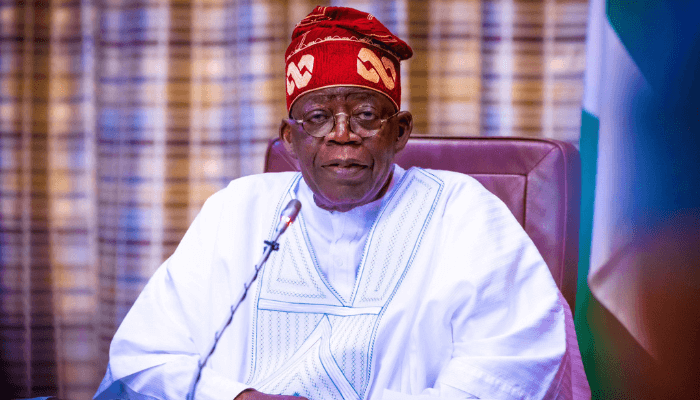If any further evidence was needed that President Bola Tinubu has failed Nigeria catastrophically, the latest report from SBM Intelligence, a market security intelligence and consulting firm, that ranked Nigeria among the biggest losers in its Africa Country Instability Risk (ACIR) report, paints a bleak picture of the country’s democratic backsliding, that should alarm every Nigerian. Nigeria dropped six places, from a score of 39 in 2023 to 45 in 2024. The report cited persistent insecurity, exit of foreign businesses, poverty, and Tinubu’s unpopular reforms as factors contributing to Nigeria’s declining political stability rankings. This is not just a statistic; it is a damning indictment of an administration that has failed to address critical issues; instead exacerbating poverty, insecurity, and economic collapse. The report is also a national embarrassment that lays bare the incompetence, apathy, and callousness of a government woefully unfit to govern. Nigeria deserves better. Leadership is not about announcing reforms; it is about ensuring those reforms uplift the people, not crush them. It is about securing the lives and livelihoods of citizens, fostering unity, and restoring the nation’s dignity on the global stage. Tinubu’s policies have not reformed Nigeria; they have wrecked it. This is governance at its worst.
The SBM Intelligence report assesses political, economic, and social factors contributing to Africa’s political instability. It also provides a framework for assessing the risk of coups d’état using factors such as ethnic tension, the country’s history of coups, dominant ethnic groups, economic concentration, ageing leaders, and mono-product or bi-product or multi-product economies. “Nigeria, Africa’s fourth-largest economy, ended the year with a score change of (-6), following the exit of foreign businesses over a weaker currency, rising inflation, and other economic challenges,” the report read in part. “Nigeria’s economy continues to worsen, with rising food inflation, persistent insecurity across all geopolitical zones, and many people falling into extreme poverty. It is more polarized now than ever after the 2023 election and the unpopular reforms of the new government, such as the removal of petrol subsidies, which have worsened living conditions and led to the closure of businesses,” the report noted.
The SBM report is not an outlier; it echoes findings from the Ibrahim Index of African Governance, (IIAG) which also highlighted Nigeria’s declining governance and political stability. In October, the IIAG report marked Nigeria as one of 11 African countries with worsening governance performance since 2014. The IIAG also highlighted Tinubu’s unpopular reforms, including the petrol subsidy removal and insecurity, as reasons for the country’s declining governance performance. Both reports underscore Tinubu’s inability or unwillingness to implement policies that promote equitable growth, security, and good governance. Tinubu cannot hide behind the excuse of “reforms” while ignoring the suffering of ordinary Nigerians. Economic policies that favor the elite while pushing millions further into destitution are neither reforms nor progress; they are failures of leadership.
Once hailed as the “Giant of Africa,” Nigeria is now synonymous with economic despair, crippling insecurity, and worsening poverty. Under Tinubu’s watch, over 129 million Nigerians; more than half the population, live in crushing poverty. The removal of fuel subsidy, Tinubu’s so-called flagship reform, has become a death sentence for millions, igniting food inflation at a staggering 39.16%. According to the Federal Ministry of Budget and Economic Planning, over 31.8 million Nigerians suffer from acute food insecurity, which has spiraled out of control under Tinubu. Armed terrorists, bandits, and separatist groups operate with impunity, slaughtering innocent Nigerians, destroying farms, and displacing entire communities. The government’s failure to confront these threats has turned Nigeria into a war zone, leaving millions homeless and terrified. Meanwhile, an indifferent president makes hollow promises and takes no meaningful action.
This government’s approach to governance has been a mix of tone-deaf policy choices and inaction on core issues. Terrorism, banditry, and separatist violence rage unchecked, costing lives and livelihoods while decimating agricultural communities. The government’s failure to protect farmers and agrarian communities has not only worsened insecurity but has also fueled the food crisis engulfing the nation. The administration’s arrogance is as shocking as its incompetence. Instead of addressing the unbearable suffering caused by its ill-conceived policies, Tinubu continues to push controversial tax reforms and ignores the cries of desperate citizens. These are not reforms; they are acts of economic violence that deepen inequality and sow despair.
This is a government that governs only for the elite, leaving the poor to fend for themselves amid skyrocketing prices, vanishing jobs, and an exodus of foreign businesses. Tinubu’s legacy is fast becoming one of betrayal: betrayal of Nigeria’s potential, betrayal of its people, and betrayal of the very concept of governance. Nigerians should not have to endure this level of ineptitude and neglect. Tinubu must either radically change course or step aside for real and purposeful leadership that prioritizes the survival and dignity of the Nigerian people. Anything less is a dereliction of duty and an unforgivable insult to the nation he swore to serve.
President Tinubu must urgently reevaluate his administration’s priorities. The time for excuses and platitudes is over. Nigeria cannot afford another year of declining governance, political instability, and unchecked poverty. The legacy of this administration should not be one of failure, but decisive action is needed—now. History will not be kind to this administration unless immediate and decisive action is taken. The world is watching, and so are the Nigerian people. Enough is enough.





